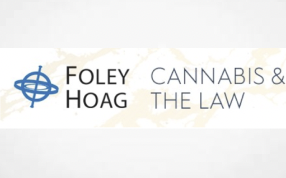Published At JD Supra
At the end of last year, it seemed like Tennessee’s final hemp-derived cannabinoid (“HDC”) rules would (finally) take effect as scheduled on December 26, 2024. As we discussed in an earlier blog post, since 2023 when the Tennessee legislature passed state’s hemp-derived cannabinoid (“HDC”) product law (T.C.A. § 43-27-201 et seq.), the Tennessee Department of Agriculture (“Department”) has been working to promulgate final implementing regulations. What perhaps should have been a straightforward notice and comment rulemaking process was complicated by the Department’s decision over the summer to push forward with temporary emergency HDC rules after already releasing draft permanent HDC rules for public review and comment. This procedural irregularity introduced a measure of turmoil into the rulemaking process with hemp operators and stakeholders crying foul. Eventually, the formal notice and comment rulemaking process on the final permanent HDC rules concluded on September 27, 2024 when the Department filed the rules with the Tennessee Department of State.
But, several hemp organizations, including the Tennessee Grower’s Coalition which had previously petitioned the Department to delay implementation of the final HDC rules and also filed a lawsuit challenging the Department’s emergency HDC rules, took one final shot to forestall implementation of the rules and filed for declaratory judgment and a temporary injunction in the Chancery Court for Davidson Co. Tennessee in early December. This 11th hour maneuver succeeded (at least temporarily) as the court issued a temporary injunction on December 23, 2024, enjoining the rules from taking effect until at least February 18, 2025 and requiring plaintiffs and the Department to engage in yet another round of briefing and submission of expert testimony. The court’s articulated basis for the temporary injunction was the absence of clear information (and perhaps also widespread confusion) regarding the mechanics of the potency testing requirements in the HDC rules.
The thrust of the plaintiffs’ complaint and motion for a temporary injunction was that these testing requirements are illegal and/or arbitrary and capricious. The HDC rules require potency testing of the “post-decarboxylation THC value” of HDC products and make clear that any HDC product moving in commerce to anyone who is not a licensed HDC supplier is subject to embargo, recall, remediation and/or destruction if it has a post-decarboxylation THC value of greater than 0.3%. With regard to the legality of these rules, the court concluded that the record evidence was insufficient for it to determine whether the plaintiffs had a likelihood of success on the merits, one of the four factors that Tennessee courts are required to consider when reviewing a request for a temporary injunction. Accordingly, the court ordered the parties to provide additional briefing and affidavits on the proposed testing rules, with particular focus on how the new proposed testing will work in regard to “the testing of THC, THCa, Delta-9 concentration level, mere hemp, and the raw hemp flower.”
Specifically, the court requested additional information on two key points. It requested to hear from “an expert in the field to explain further the proposed post decarboxylation testing regimen and how it determines or calculates the statutory levels for THC, THCa, and Delta-9 THC in products.” It also requested additional information on the “scientific composition of ‘raw’ hemp, ‘mere’ hemp, and ‘cannabinoids,’” the former two of which plaintiffs had argued are not “HDC products” subject to the rules. According to the court, to make a determination on the plaintiffs’ likelihood of success on the merits, the court requires this additional information in the form of affidavits or sworn testimony from persons with specialized knowledge on both of these questions who are qualified as experts pursuant to Tennessee Rule of Evidence 702. The court believes this proof will assist it in determining the legality of the Department’s proposed post decarboxylation testing regimen and also in answering the threshold question of whether a cannabinoid can be “tested separate and apart from the actual plant cannabis sativa L or if the cannabinoid derived from hemp is in fact hemp or a separate derivative of the plant.”
The court ordered the plaintiffs to file additional briefing and affidavits no later than January 22, 2025 and the defendants to file additional briefing no later than February 5, 2025. The court also permitted the parties to request live expert testimony pursuant to the Davidson County Local Rules of Court, but confirmed that the hearing scheduled for February 18, 2025 “shall be the final hearing on this declaratory action.” Those who have followed this regulatory process closely since 2023 may be quite skeptical of that statement from the court. But, nevertheless, we will follow these developments closely and provide an update following the on the merits hearing next month.
Source: https://www.jdsupra.com/legalnews/waiting-game-tennessee-s-new-hemp-5568630/



















